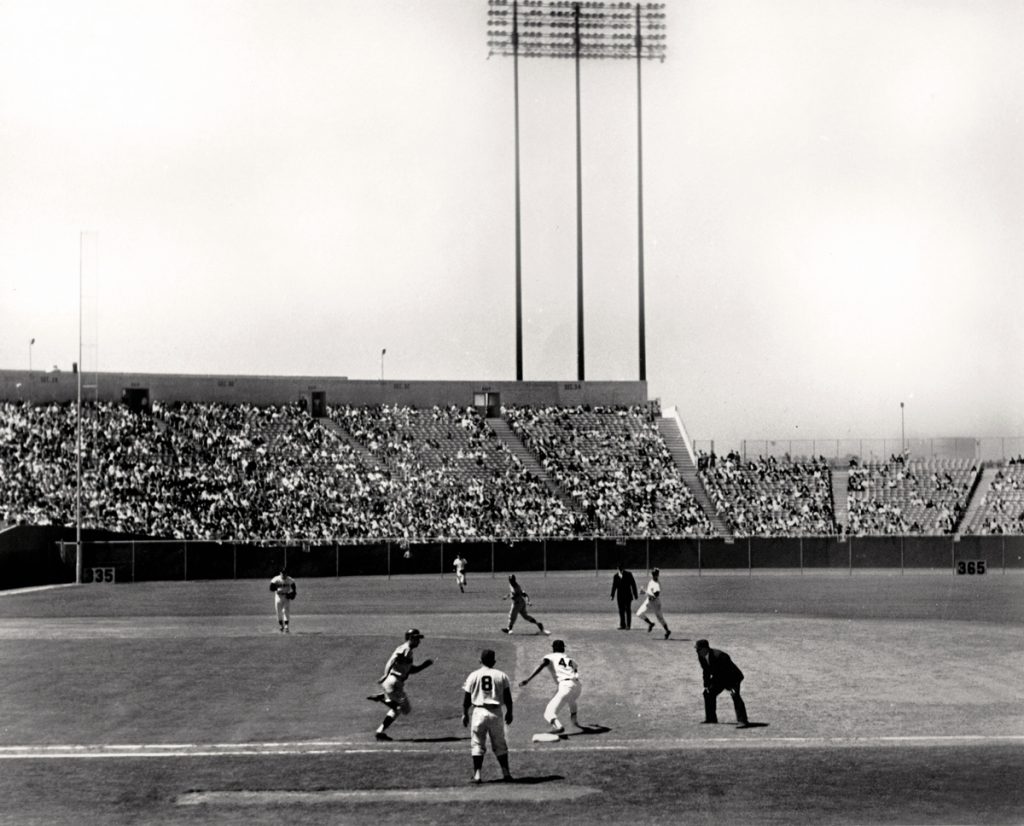
When Willie McCovey’s ninth-inning, two-out, Game 7 screaming liner ended up in Bobby Richardson’s glove, the difference of a foot or so up or over decided the 1962 World Series on a single swing (and, as most fans of a certain age are aware, with another Hall of Famer, Willie Mays, on deck). And as David Krell details in his new book 1962: Baseball and America in the Time of JFK (University of Nebraska Press, 384 pps.), the year was itself pivotal: the era of “Camelot” represented in the vibrant young President before it was all shattered a year later and the 1960s took on the full brutality for which the decade is most remembered.
Krell takes readers through the year in 12 chapters, each loosely representing January through December but more clearly taking a topic relevant to the year and digging in. It’s not a review of the baseball season as much as a recalling of the time in politics, and, more, in popular culture. Movies, music, TV, books and news of the day, some like Marilyn Monroe which have lived on six decades later and some less chronicled like Phoenix “Romper Room” host Sherri Chessen, at the center of a high-profile abortion case amid the prescription and use of Thalidomide.
And while the Yankees and Giants ended up in the World Series, Krell finds interesting stories in other facets of the ‘62 season, including the birth of the expansion Colt .45s and Mets, the sagas of Bo Belinsky, Maury Wills and a few other standouts.
Krell weaves the baseball in and out of what seem like much larger, more important parts of the 1962 narrative: NASA’s John Glenn and Scott Carpenter, admission of Black students into the University of Georgia, and the fallout from the Cuban Missile Crisis among them.
This isn’t to say there isn’t plenty of baseball in Krell’s work too. The stars like Mays, Mickey Mantle and Orlando Cepeda get their due, but even more interesting are passages on some lesser-known players of the era, sometimes grouped logically together like Clete Boyer, Luis Arroyo, Ralph Terry and Ralph Houk and other times standalone like Ed Bailey and “Casey’s Boy” Rod Kanehl.
The inclusion of the workaday players adds texture to the baseball sections. In much the same way, when discussing TV shows and films of the era, while making a case for 1962 as perhaps the greatest film year ever, with a nod to 1939, Krell discusses a variety of movies, from Lolita to Days of Wine and Roses to the less appreciated Experiment in Terror. Within are details that include illuminating interview snippets, often with the children or close associates of the stars or directors.
When discussing the 1960s, it’s usually the later years of the decade, or at least the post-Kennedy assassination portion that gets the most attention. Krell’s look at 1962 hits the mark on a less recognized year that in retrospect had as many twists and turns as did the pennant races and World Series, and, like McCovey’s drive, might have ended very differently.
 IBO Boxing Honesty and Integrity
IBO Boxing Honesty and Integrity